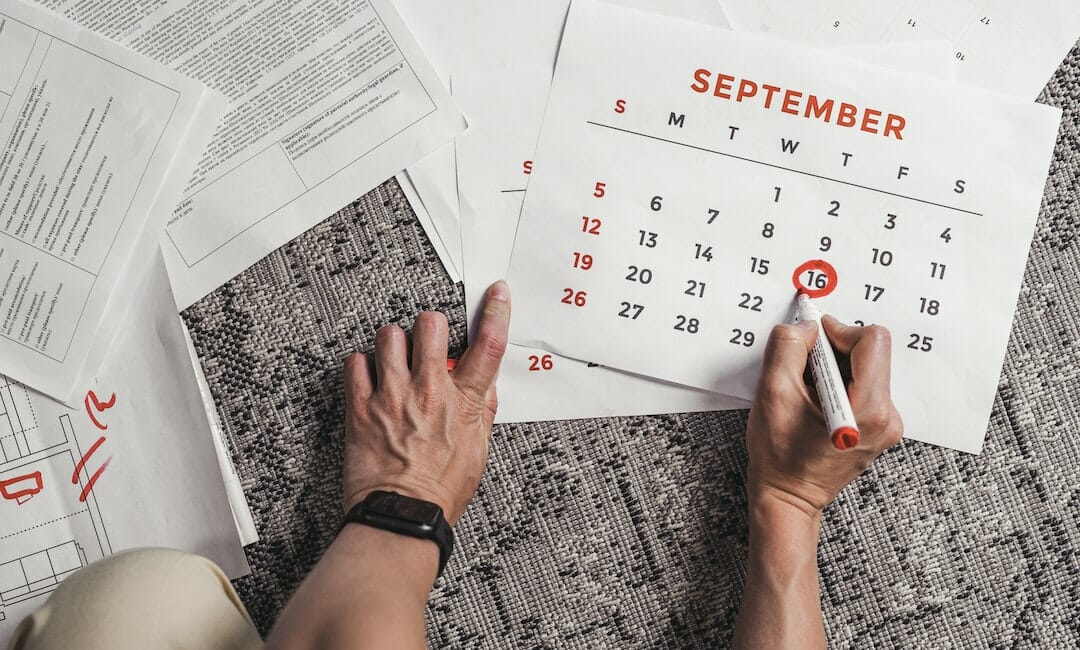Buying a property at auction, whether as an investment or to live in, can be a great way to grab a bargain. It is often assumed that auction purchases are only for cash buyers, but in reality, they are an excellent option for all kinds of homeowners, from investors to those wanting to purchase a home to live in.
If you are wondering if you can get a mortgage on an auction property, then the short answer is yes, you certainly can. However, you will usually require a quick turnaround to secure the property you have lined up.
In this article, we will look at what an auction property is, how the purchase of an auction property is different to the traditional residential market and how you can get a mortgage on this type of property as well as the considerations you need to keep in mind. If you are curious about purchasing an auction property, then read on.
How does purchasing a property at auction differ from the open market?
When you purchase a property at auction, the total cost of the property must be paid within a defined timescale. This will depend if the auction sale is conditional or unconditional (we’ll get into this later). This means any buyer must be confident they can fund the full cost of the property before the agreed date because as soon as you are confirmed the winning bidder, you are legally obliged to purchase the property as agreed in the terms set out. There are two types of auction sales you can choose from.

Unconditional Auction Sale
With an unconditional auction sale, on the day of the auction, the high bidder must be able to put down a 10% deposit and agree to pay the balance within 15 days. If the buyer cannot pay within 15 days, they risk losing their deposit and may become liable to repay the whole amount plus any resale fees of putting the property back on auction. This means it’s essential to know exactly where your funds will come from if you win an auction property and to be sure they will be available within 15 days (or another period as set in the terms).
Conditional Auction Sale
Conditional sales are the preferred option for those auction goers who need finance to complete their property purchase. This is because the completion timescale tends to be longer than that of unconditional auction sales, typically forty days to exchange contracts and complete. Check your legal pack carefully, as this can occasionally be different. If you fail to pay in the set time, you also stand to lose your deposit. Conditional auction sales are better for mortgage buyers as they stand a better chance because they will have more time to secure their mortgage, arrange for surveys, appoint solicitors and carry out any other admin work required to progress the sale.
If you want to learn all about the details of purchasing a property at auction, check out our guide on how to purchase a property at auction, which covers everything you need to know.

Can I secure a mortgage before heading to auction?
It’s essential to have, at the very least, a mortgage in principle agreed upon before you consider bidding on auction property. A mortgage in principle means that the lender is willing to lend you a certain amount of money in principle, and they would have assessed the affordability of a mortgage based on your current earnings and ability to repay the mortgage. But, of course, a lender still has the right to back out of their offer, and it’s a good idea to get a mortgage valuation before bidding at auction to ensure they will actually lend on that property.
It’s crucial to remember that a lender will only lend you the amount on the agreement in principle, and if the bidding goes over, you will be expected to make up for the difference that your mortgage offer does not cover. Make sure you budget for all the fees involved with purchasing a house, valuations, searches, legal, and insurance so you are not caught short.
What if my lender can’t issue the mortgage before the deadline?
It’s a common concern that lenders might not be able to keep to such short timescales, especially those with unconditional auctions which need to be completed within fifteen days. For this reason, most auction mortgage sales tend to fall into the conditional sale category giving the buyer a longer turnaround to get their mortgage funds.
Mortgages can take 2-6 weeks to be arranged, which in most cases is plenty of time. It’s worth considering, however, that sometimes things do take a little longer than expected. When things don’t go quite to plan, other finance options are available, and this is where a bridging loan could help.

Bridging loans for auction properties
If you are experiencing delays waiting for your mortgage to be processed, then a bridging loan could help. As bridging loans are a short-term finance solution (typically 12 months or less), they are the perfect solution to bridge the gap to pay the auction house and secure your property whilst waiting for your mortgage to be issued. You can learn more about how a bridging loan from Novellus could help you secure an auction property here.
Conclusion
Auction properties are a great way to buy a property and save money. They are available to both mortgage and cash buyers. Before committing to an auction purchase any buyer needs to obtain an agreement in principle from a mortgage provider as proof they can finance the purchase. After the auction, the buyer must then complete the sale within the set timeframe or risk losing their deposit or even more. Before committing to an auction purchase it’s essential to do your research to ensure you won’t run into any unexpected problems down the line, and we always recommend seeking the advice of a property and mortgage expert before proceeding with any sale.


